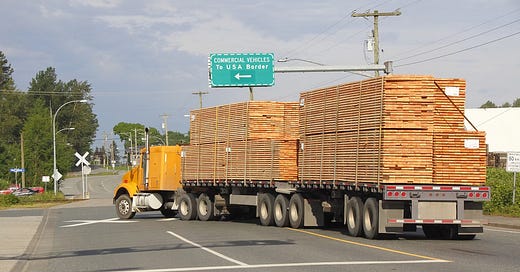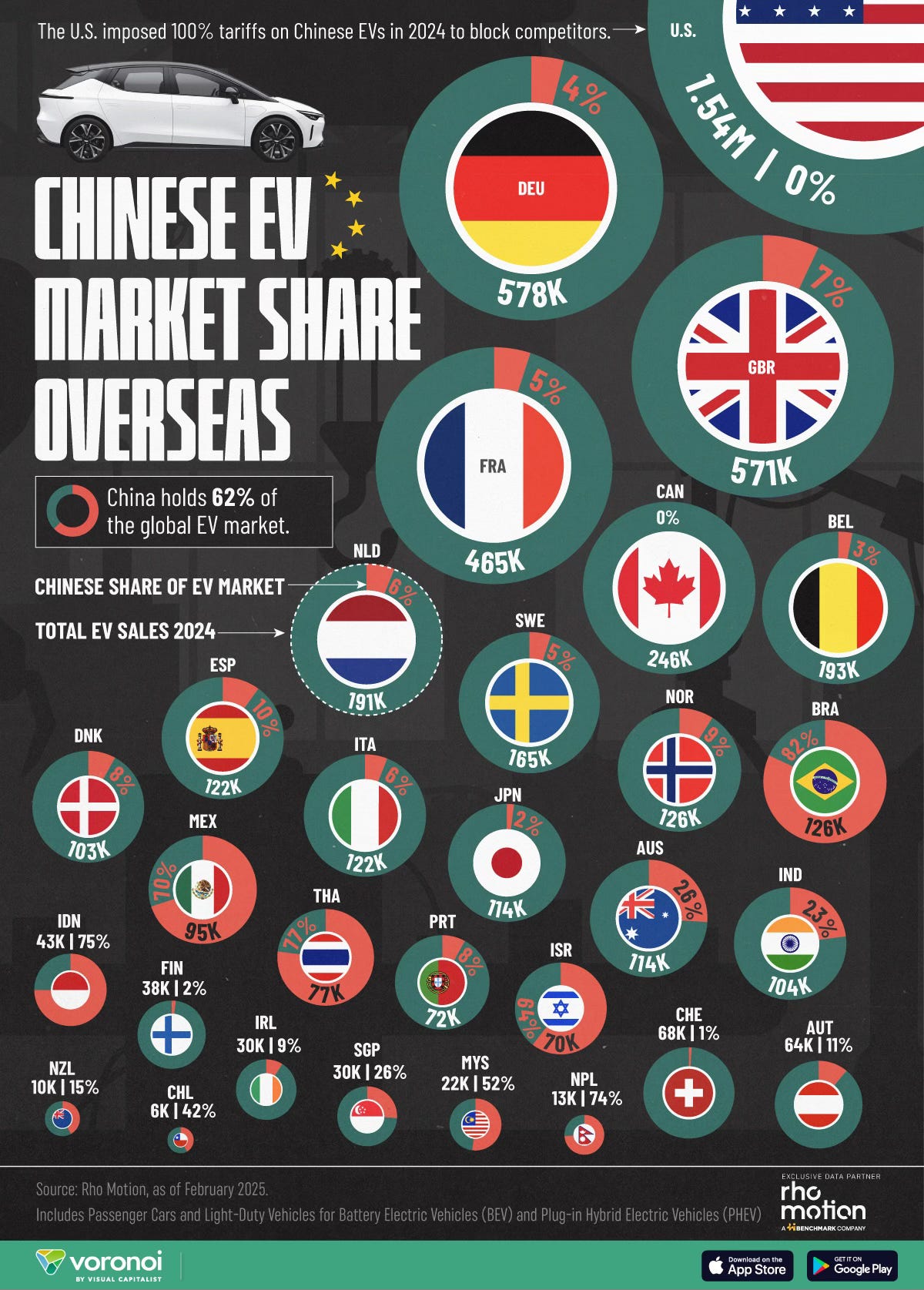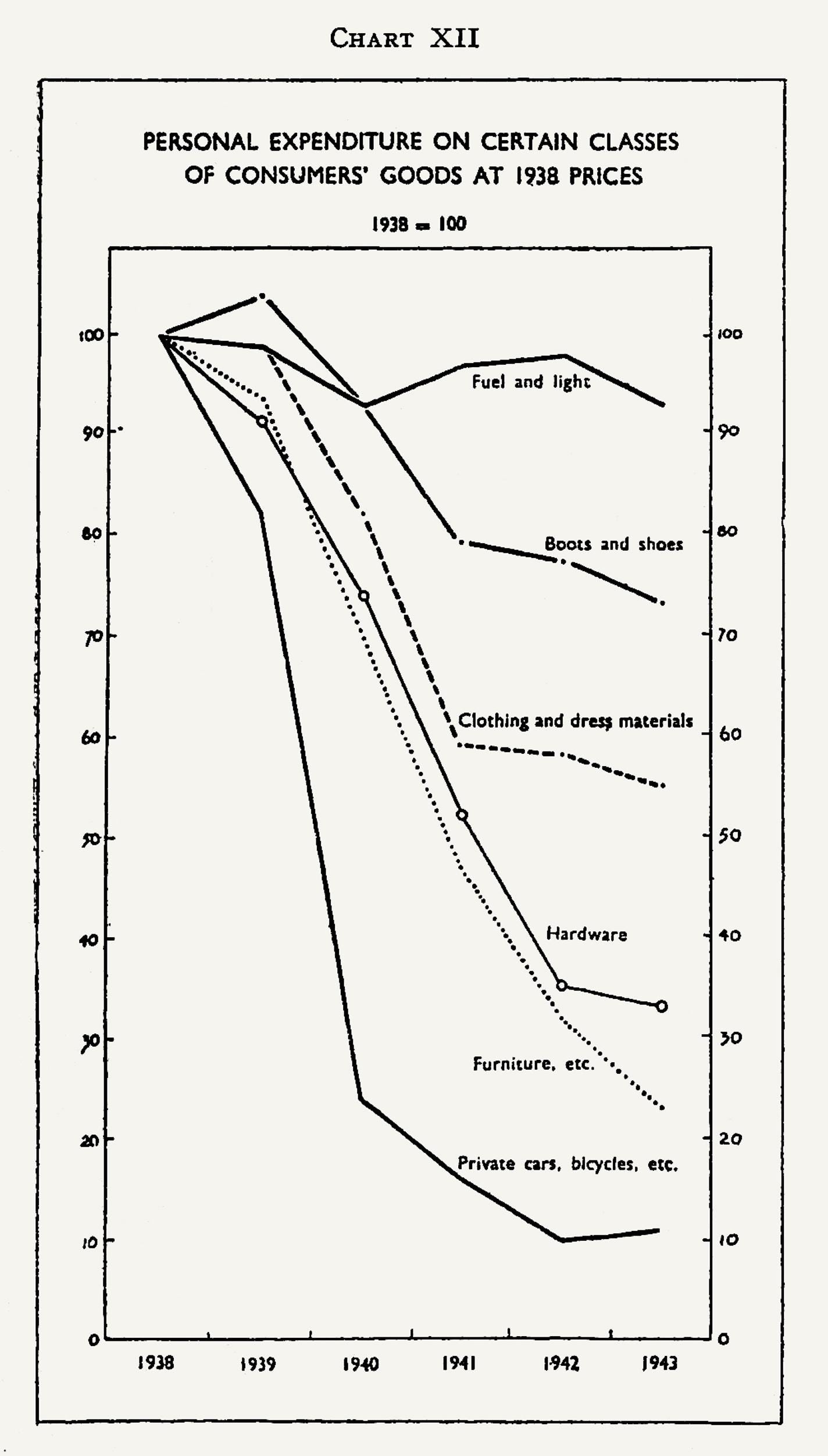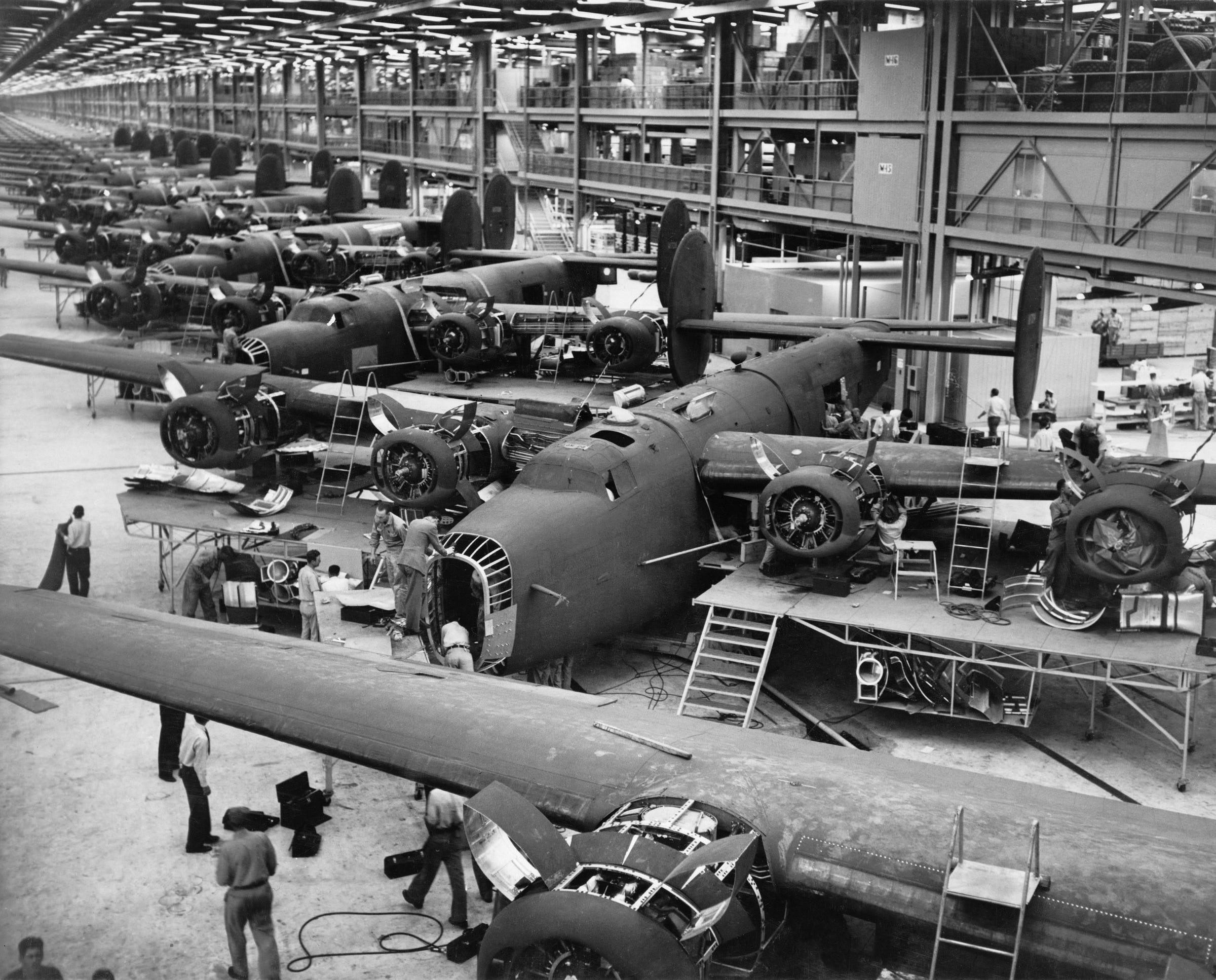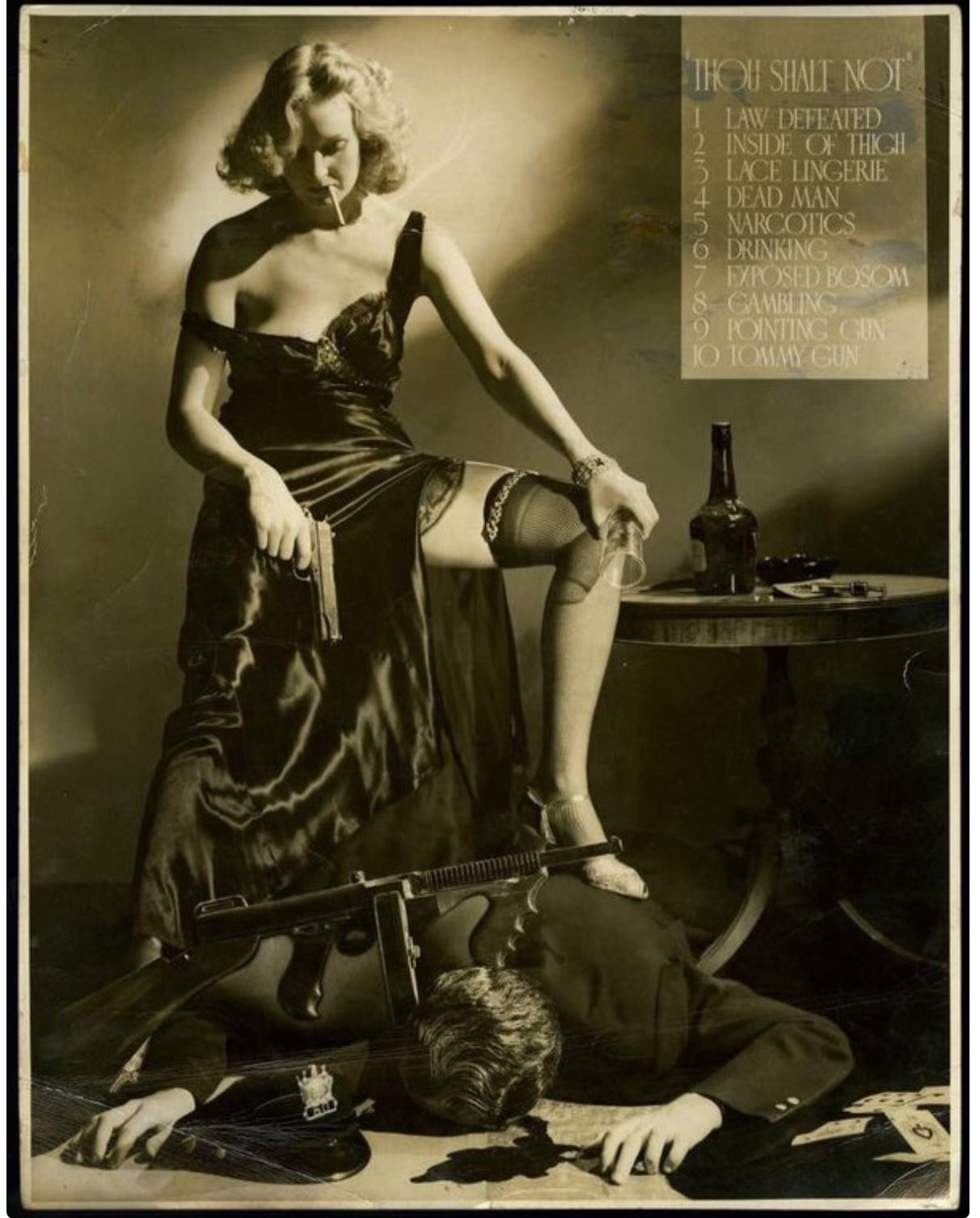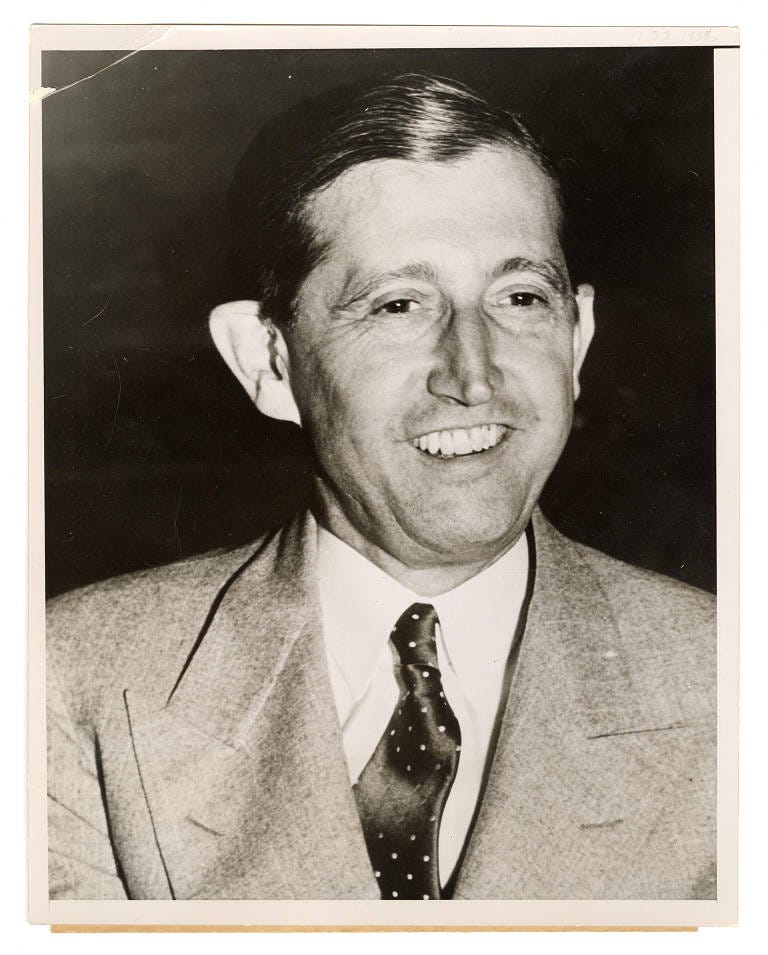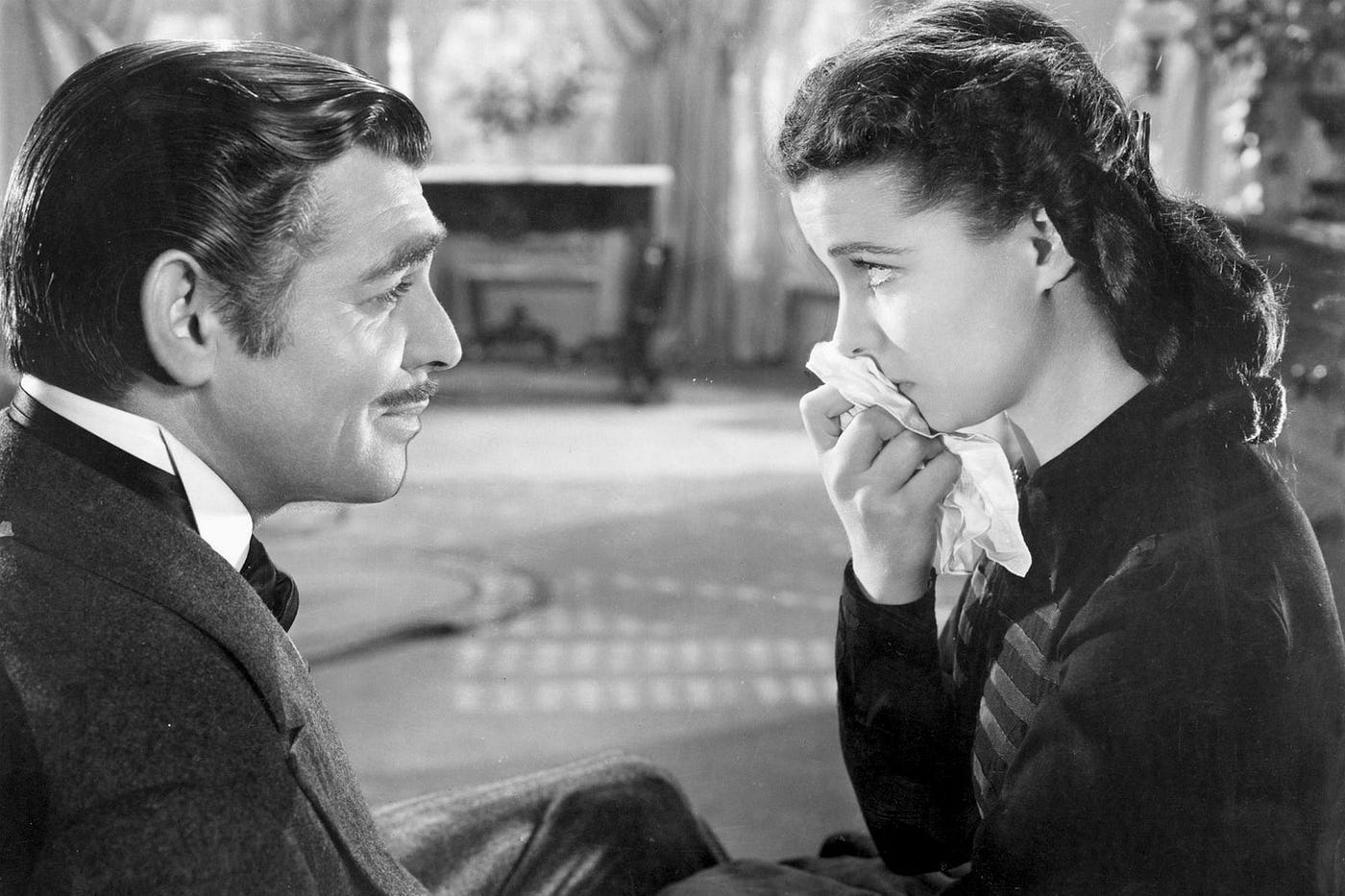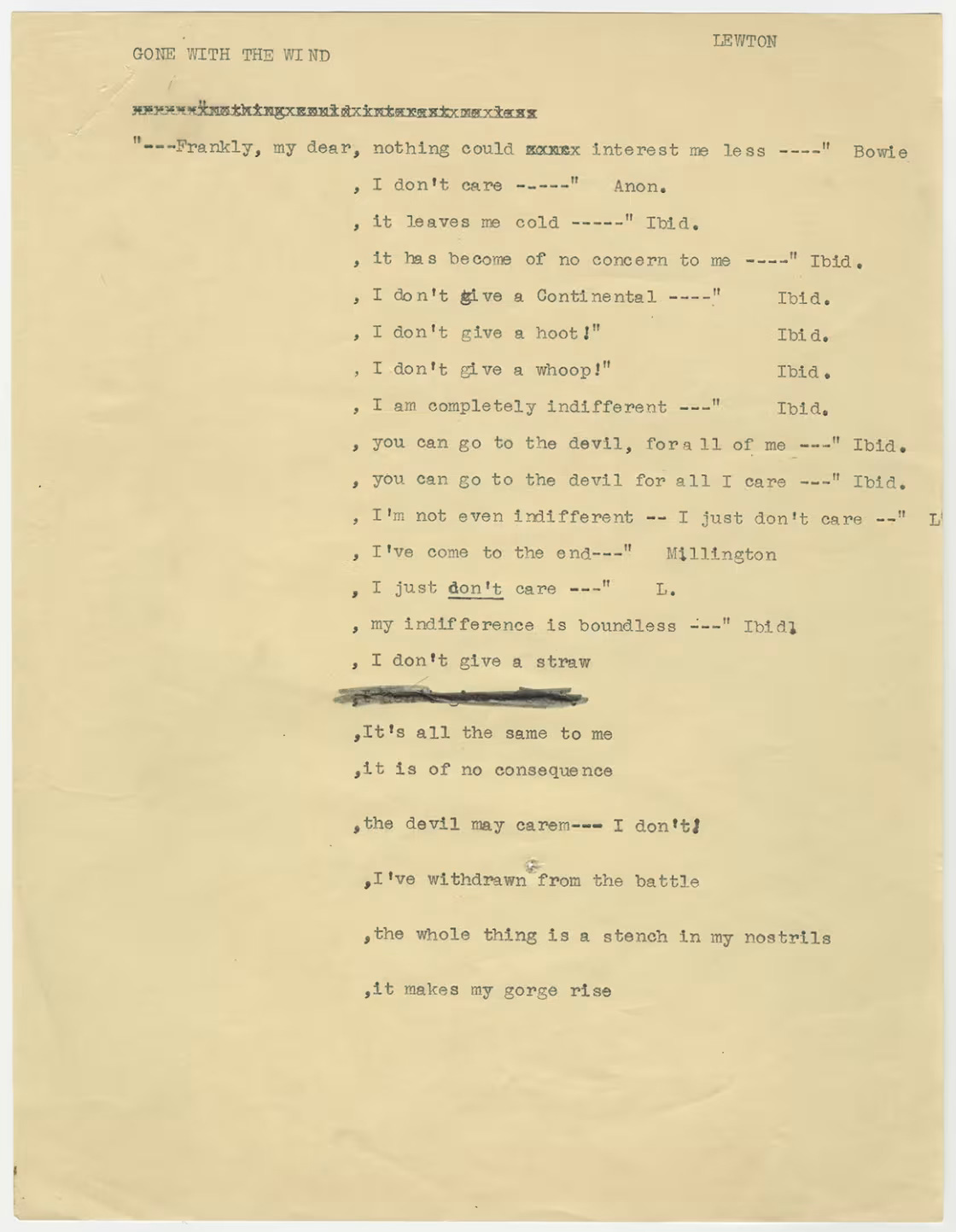Now It’s Lumber
Donald Trump said on Saturday he wants to study Canadian lumber imports at a time when the United States, and especially California, needs every two by four it can get its hands on to rebuild after the fires in Los Angeles. Canadian lumber is already subject to a 14.5% tariff and could be hit by an additional 25% on Tuesday.
The United States doesn’t produce enough lumber for its domestic market, especially in a time of crisis like the LA fires. Trump had earlier suggested getting rid of things such as endangered species laws which close US forests to logging. White House adviser Peter Navarro, the man who wants to re-draw the Canada/US border, said lumber imports were a national security issue, because the military uses lumber.
It will make lumber in California more expensive, but Trump doesn’t like California.
Chinese Electric Cars
Chinse electric cars are cheaper than most of its compeititon and as the chart shows they have a hige market share in some countries such as Mexico and Brazil. High tariffs keep Chinese electric cars out of Canada and the United States.
China Shows off Car Production
The Global Times is a daily tabloid newspaper under the auspices of the Chinese Communist Party's flagship newspaper, the People's Daily.
German Electric Cars
Mercedes has produced the first vehicle from a major car company with a solid state battery. This is a big deal. It adds 25% range without adding size or weight. The engineering is it replaces liquid electrolytes with solid ones. I don’t understand it either, but it means the battery is safer than current electric batteries.
“The prototype EQS is projected to deliver an impressive 620 miles (1,000 kilometers) of range, based on WLTP testing. This represents a more than 25% improvement over the current EQS 450+ model,” says a story in Interesting Engineering.
That kind of range would get rid of the big negaitve for electric vehicles.
Toyota has been working on solid state technology but Mercedes seems to have beaten them to producing an actual vehicle even if it’s a prototype not for sale. Yet.
When There were No Consumer Goods
“No motor-cars, refrigerators, pianos, vacuum cleaners, tennis or golf balls have been produced since 1942, and only very few radios, bicycles, watches and fountain pens.”
That from the Economist’s January 3, 1945, edition as part of its series on the last year of the Second World War.
And this is the reason: a factory that might have made cars making B-24 bombers. Nazi Germany and Imperial Japan were defeated by American, and Canadian, industrial capacity that they could not hope to match.
A 1940 Photograph Satirizing Hollywood’s Putitnical Hays Code
The Hays Code ruled in Hollywood from 1934 to 1968. It was named after this man, Will Hays, president of the Motion Picture Producers and Distributors of America.
There were some weird orders from the censors.
In Gone With the Wind, Clark Gable’s chracter, Rhett Butler, says “Frankly my dear I don’t give a damn.” It was a fight to keep in `damn’. They came up with some ridiculous suggestions.
And in Casablanca, Rick, played by Humphrey Bogart, was scripted to shoot a German in the back. The censors said he had to shoot him in the front, to be fair.
Essay of the Week
This is an obit I wrote in 2008 about one of the members of the family that started and controlled Canadian Tire. He led an uneventful life until he got into a battle with his formidable cousin Martha.
Dick Billes was the son of one of the two founders of Canadian Tire. For most of his life, he kept a low profile, but his efforts to lead a quiet existence were frequently disrupted by a long public spat over control of the family business.
The battle started when his father died prematurely, leaving a messy will. In the end, Dick Billes and his side of the family finally lost out to his cousin Martha Billes, who eventually gained control of the company.
John William Billes (Dicks's father) and Alfred Jackson Billes (Martha's father) took over the Hamilton Garage and Rubber Co. in 1922. During that decade, car ownership in Canada grew tenfold and the system of paved roads expanded even more - it was the right business to be in. In 1927, the brothers (who were always known by their initials, J. W. and A. J.), decided to rename their company Canadian Tire.
Dick Billes was born the following year into what was fast becoming a wealthy family. The youngest of three children, he grew up in Toronto's Lawrence Park neighbourhood. The Billes family never spent lavishly, and both founders worked six days a week and ate lunch at inexpensive restaurants. They also did not belong to any fancy business clubs.
Dick's father chose to raise his family in a relatively modest house (his brother's was somewhat grander) and never discussed business at home. Dick, in fact, said he did not know his father owned Canadian Tire until he was a teenager. Of course, there were some luxuries: the family skied on winter weekends and spent summers on Lake Simcoe, cruising in J. W.'s 10-metre cabin cruiser.
Dick Billes first worked at Canadian Tire at 7, counting batteries. It was the height of the Depression and, unlike other companies, Canadian Tire was prospering. After high school, he went to university for a while but his father insisted that he switch to a business college.
In 1950, he started working full time in accounting. He was soon being spoken of as the chosen one who would step into the shoes of Canadian Tire's founders. It helped that it his father ran the company and chose to confide in him. His father, he said, was a dictator who gave orders to A. J.
But in November of 1956, his father died at 59 and everything changed. From that moment on, the power in the family shifted.
J. W. left a complex will that led to difficult and drawn-out succession problems. His estate was valued at $6.2-million, which would be worth $50-million today, according to the Bank of Canada's inflation calculator. The bulk of the estate - more than 90 per cent - was in Canadian Tire shares and much of it was left to such charities as the Red Cross and Toronto's Hospital for Sick Children. His three children, including Dick, received annuities.
"It's a classic bad will," Dick Billes said years later. "They even use it in universities to say this is what you shouldn't do."
The bickering between cousins and siblings began almost immediately. For his part, Dick Billes made what seemed like a power play. The day after J. W.'s funeral, he took over his father's office. The move into the "throne room" upset his uncle and disagreements soon followed. A. J. wanted to sell gasoline, Dick Billes maintained his father's stand against it. A. J. went ahead and Canadian Tire gas bars became a huge success. A. J.'s wife, Muriel, came up with the idea of Canadian Tire money to act as a cash discount for gasoline purchases. Dick Billes claimed his father thought of it first.
In December, 1960, while his uncle was on vacation, Dick Billes decreed that all Canadian Tire stores could close on Boxing Day. When A. J. came back, he countermanded the order and Dick Billes was brushed aside. If that was not enough, he was soon off the board and out of the company, although he later made a comeback.
The defeat left him bitter, The Globe and Mail's Ian Brown wrote in his 1989 book Freewheeling: The Feuds, Broods, and Outrageous Fortunes of the Billes family and Canada's Favorite Company.
"Dick never forgave me because when his father died, he thought he should be president," A. J. Billes is quoted as saying. "I never intended Dick to be president. I intended him to earn his place. In a lot of ways, Dick was very capable. But as president? No. Dick wasn't old enough. And I think he was a little too conservative."
Without control of voting stock, Dick Billes and his siblings never held influence at Canadian Tire again. Control was put in a voting trust that combined the holdings of the charities with those of A. J. Billes.
A few years later, Dick Billes returned as a director of the board and was given a Canadian Tire store in the east end of Toronto. Even so, the squabbling continued - even with Dick's own reclusive brother. "We're not social climbers," said John Billes. "My brother [Dick], that's another story."
By all accounts, Dick Billes regarded his brother in a similar fashion. "He didn't want to do the mundane things to learn how the business worked," he told author Rod McQueen in Can't Buy Me Love: How Martha Billes Made Canadian Tire Hers. "He's not exactly the proudest moment of my life."
Meanwhile, the influence of his cousins Fred and Martha Billes had begun to grow, and almost 30 years after the death of J. W. Billes, the issue of who controlled the shares was settled in part by the Ontario Supreme Court. By June of 1983, 23 charitable organizations owned more than a million shares of Canadian Tire, worth $64-million at the time. The charities wanted to sell their shares and the court ordered the sale to go through despite the objections of Dick Billes. That December, he was ousted from the board again.
In April, 1995, A. J. Billes died and left his shares to his children. But that stock was also tied up in the same voting trust. Another round of legal wrangling ensued. When the smoke cleared in 1997, Martha Billes was in firm control of Canadian Tire.
Dick Billes lived all his married life in a large bungalow in Don Mills on the edge of the Bridle Path, one of Toronto's most expensive neighbourhoods. Like his father, he loved boats. He spent his summers at his cottage in Muskoka and winters in Florida. He ran his own Canadian Tire store at Lawrence Avenue and Kennedy Road in Toronto for 25 years.
In the end, he was philosophical about the long years of infighting.
"It was out of our hands," he told Mr. McQueen. "It was our father who set it in motion. He gave the shares to A. J. in the first place [at the founding of the company]. A. J. didn't buy them; they were given to him. My father must have wanted it that way.
"I can't get myself upset over something I can't control. I had to make my own life and do the things I wanted to do, which I did."
Alfred Dickson Billes was born Aug. 8, 1928, in Toronto. He died July 22, 2008, of prostate cancer. He was 79. He is survived by his wife, Norma, and by children Rob and Ann. He also leaves his brother, John. He was predeceased by his sister, Gwen.

